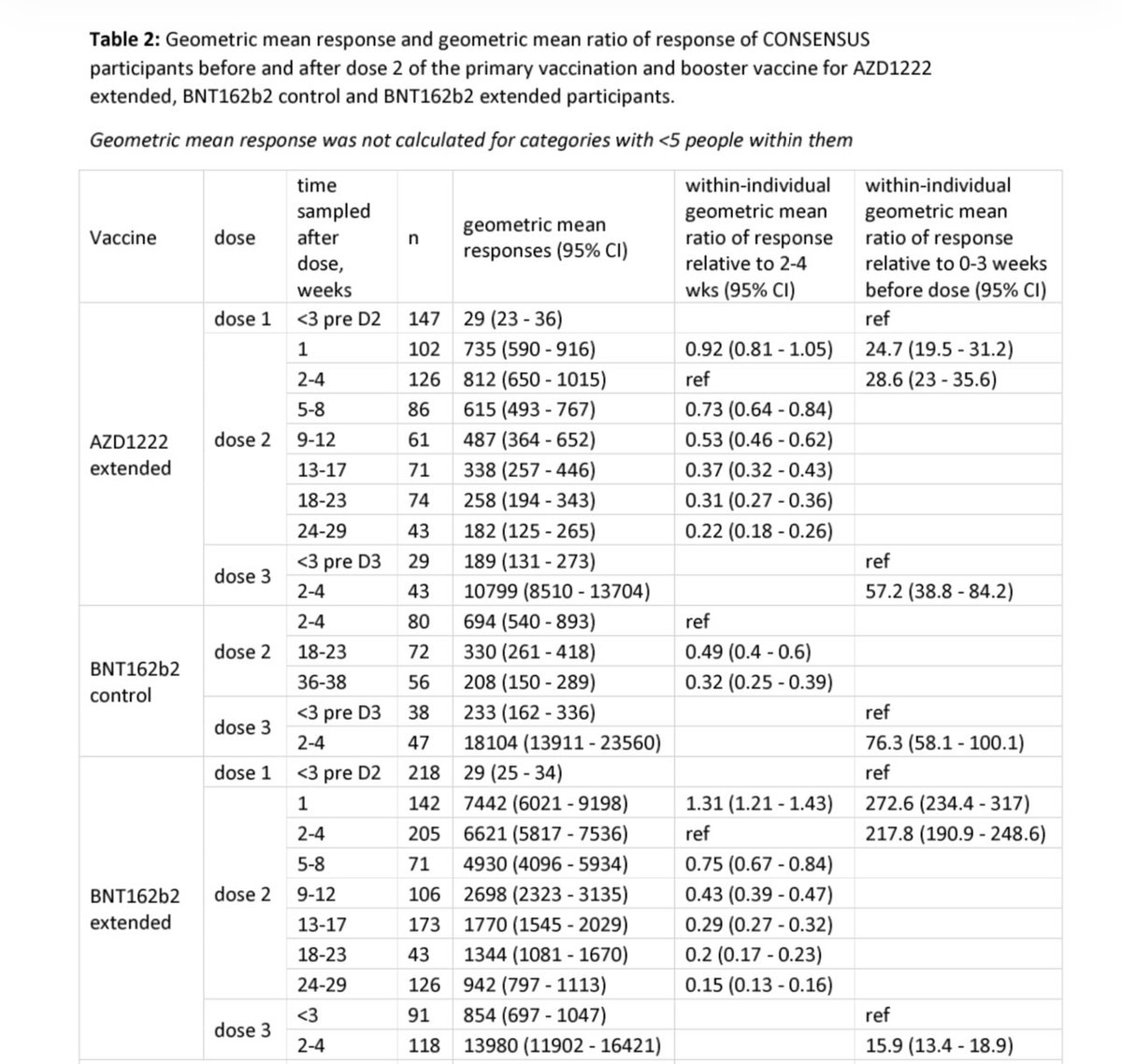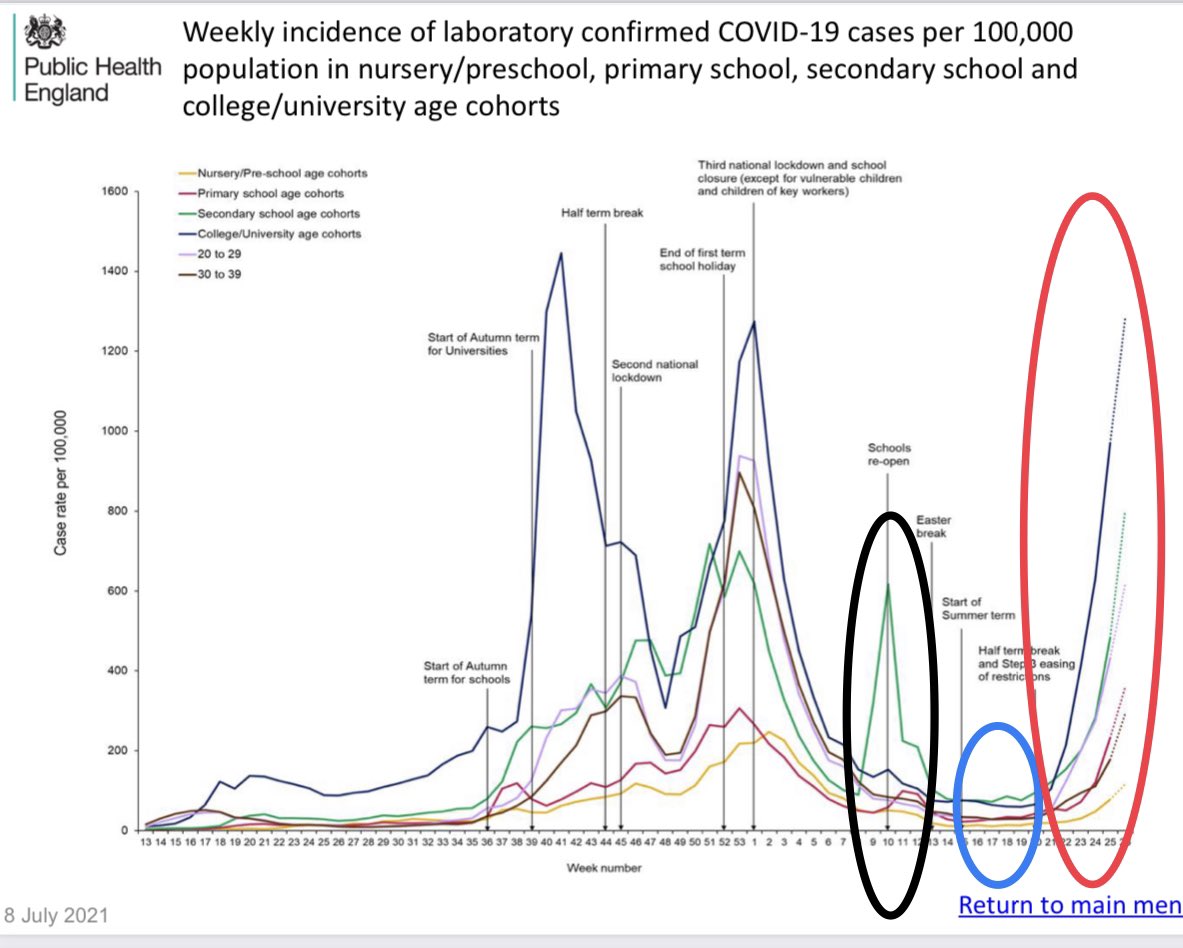
1/ Our preprint on #SARSCoV2 antibody responses in UK adults receiving a #COVID19 vaccine booster with the Pfizer vaccine at least 6 months after primary immunisation with Pfizer or AZ vaccine, which was given at an extended interval (8-12 wks) … 🧵
👉 medrxiv.org/content/10.110…
👉 medrxiv.org/content/10.110…
2/ We recruited adults aged 50+ years when they became eligible for their #COVID19 vaccine as part of the UK National Immunisation Programme. Participants provided regular blood tests for #SARS_CoV_2 antibodies at multiple intervals, including before & after the booster dose.
3/ 3 groups were assessed: (i) 2 Pfizer doses <30 days apart (Pfizer-control), (ii) 2 Pfizer doses ≥30 days apart (Pfizer-extended) or (iii) 2 AZ doses ≥30 days apart (AZ-extended) in London, England. Spike protein antibodies were compared before and 2-4 weeks after the booster 

4/ We observed antibody waning after primary immunisation for all 3 groups. Antibodies peaked at 2-4 weeks after dose 2, before declining by 68% at 36-38 weeks after dose 2 for Pfizer-controls, 85% at 24-29 weeks for Pfizer-extended & 78% at 24-29 weeks for AZ-extended adults 

5/ Before the booster, antibodies were highest in Pfizer-extended participants (942 [95%CI, 797-1113]) vs AZ-extended (183 [124-268]) participants at 24-29 weeks, or Pfizer-controls at 36-38 weeks (208; 95%CI, 150-289). Results for infection-naive adults below 👇 

6/ At 2-4 weeks after booster, antibodies were significantly higher vs primary vaccination in all 3 groups: 13,980 (11,902-16,421) in Pfizer-extended (15.9-fold) vs 10,799 (8,510-13,704) in AZ-extended (57.2-fold) & 18,104 (95%CI, 13,911-23,560) in Pfizer-control (76.3-fold) 

7/ Pfizer-control participants (median:262 days) had longer interval between primary & booster doses than Pfizer-extended or AZ-extended (both median:186 days) ➡️ they started with lower pre-booster antibody levels & longer time for immune memory to mature than other the 2 groups
8/ Conclusion 1: boosting with Pfizer vaccine after 6 months provided very high antibody levels irrespective of primary immunisation with Pfizer or AZ
A longer interval between primary vaccination & booster provides higher post-booster responses ➡️ longer duration of protection?
A longer interval between primary vaccination & booster provides higher post-booster responses ➡️ longer duration of protection?
9/ Conclusion 2: Boosters will not only provide additional protection for those at highest risk of severe COVID-19 but also prevent #SARSCoV2 infection and, therefore, interrupt transmission, thereby reducing infections rates in the population
/End.
/End.
• • •
Missing some Tweet in this thread? You can try to
force a refresh









